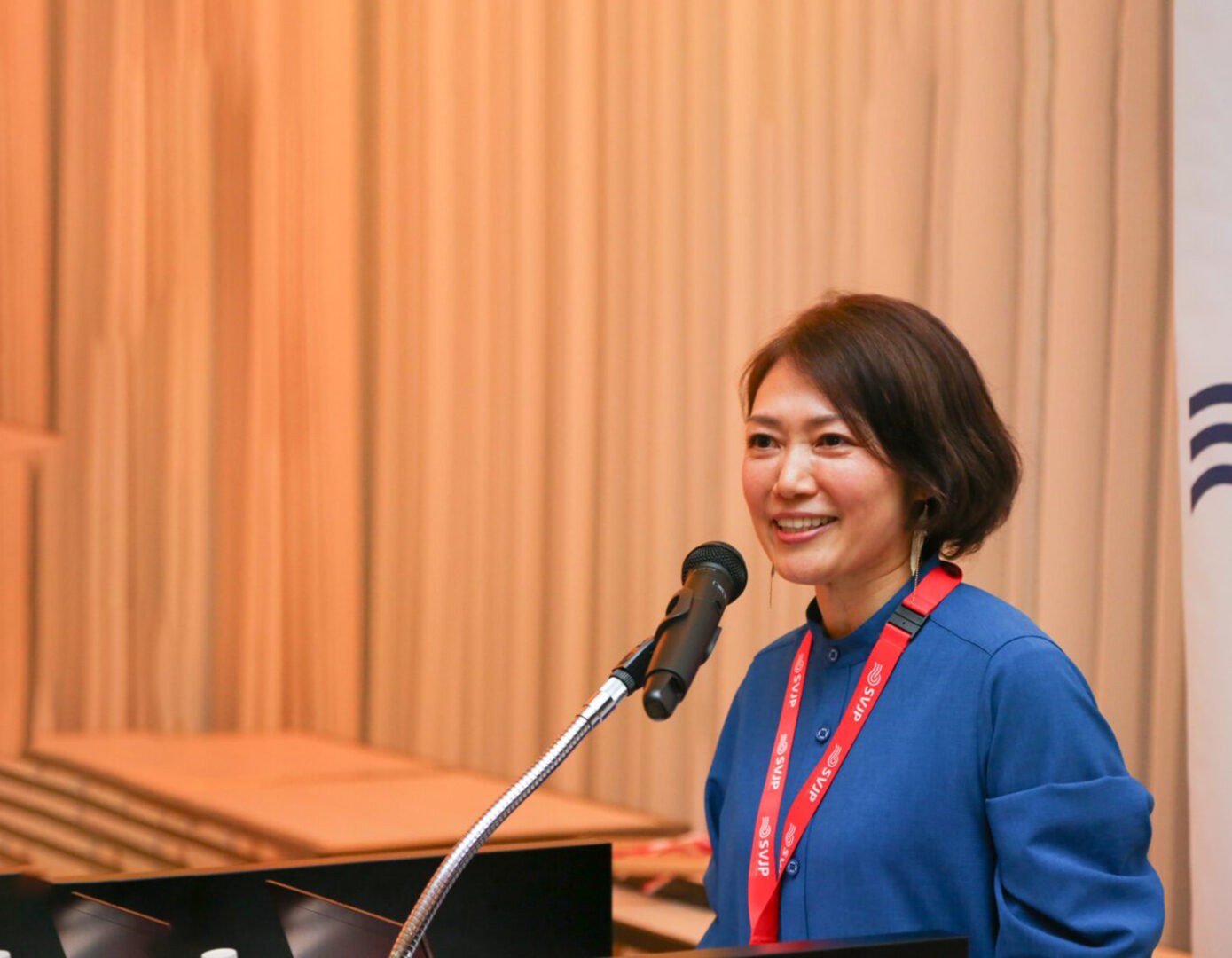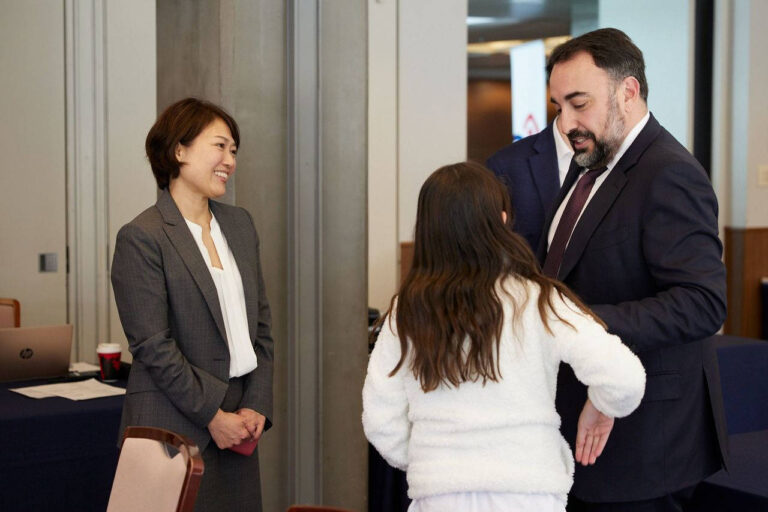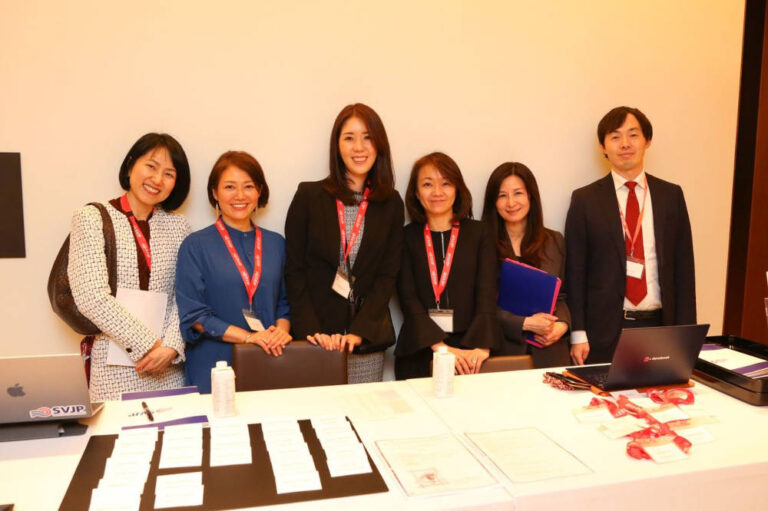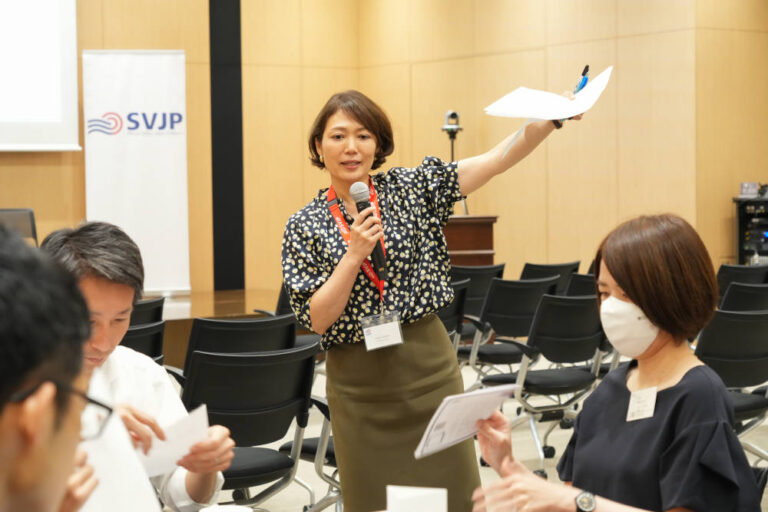
As a woman leader, Yuko Adachi spent years combating gender stereotyping in the workplace – until she realized the biggest hurdle was her unconscious gender bias.
“I used to feel bad when people said that I was gentle or feminine,” she said. “It affected me negatively, and I ended up trying to ‘split’ myself between my public image and my private self. I really struggled to reconcile the dichotomy.”
It was only when Adachi decided to embrace her authentic self that she hit her stride as a leader. “Over time, I realized that women leaders can be strong and feminine at the same time. What matters most is getting the job done. This is the biggest lesson I’ve learned in my years as a leader – to embrace myself as I am.”
Challenging gendered perceptions
Over Adachi’s 30-year career in the IT industry, she has helped numerous businesses develop data-driven investment strategies to drive growth. She honed her expertise at the technology research and consulting firm Gartner, where she led the research on IT workforce planning, talent development, and culture change.
Currently a director at the Silicon Valley Japan Platform, a non-profit organization that aims to build and strengthen US-Japan relations for strategic collaboration and business investment, she explained why she took up IMD’s Strategies for Leadership (SL) program, which is tailored to women.
“In 2018, I was appointed a global content leader to lead virtual teams across the world. I wasn’t very satisfied with my leadership performance and thought about attending a program that could help me brush up my knowledge and skills and gain more confidence,” she said.
A notable takeaway from the SL program, she recalled, was developing a better understanding of gender-based perceptions, which helped her to tackle the unique challenges of workplace gender inequality.
“An interesting question that came up during the program was: how women perceive women leaders. As more women take up leadership positions, it is crucial for them to understand the gender dynamics in the workplace, especially with female colleagues who may not respond as favorably as conventionally thought.”
Some women, she explained, who may be used to having male managers, often perceive men as more decisive.
“They may also perceive female bosses as leaders who are not likely to support their career progress due to rivalry and this idea of the ‘Queen Bee’ syndrome,” she added, referencing a term used to describe women who may treat their female subordinates more critically and refuse to help them rise up the career ladder as a form of self-preservation.
To tackle workplace bias, Adachi learned that women leaders need to tailor their communication to each employee. “There’s no one-size-fits-all approach. We need to understand their perceptions, emotions, and motivations to give them direction and lead them well.”
Another important takeaway from the SL program was learning to tap into the different perspectives and experiences of the team and leverage diversity as a key leadership skill.
“The program showed me how everyone has different experiences – and each person is fundamentally different,” she explained. “On a personal level, this learning was comforting. It made me realize how important it was to focus on myself and bring my own unique take to leadership, whereas in the past I constantly compared myself with others.”
Learning beyond the program
Adachi also found great value in the program’s alumni network, which facilitates the sharing of business findings and management insights for continued leadership growth. Staying up-to-date and relevant is particularly important in today’s rapidly changing business environment, in which leaders must engage in continuous self-reflection and growth to foster success.
“You may have the opportunity to learn certain skills and strategies from the SL curriculum, but after the program, you need to start applying them in the workplace and your daily life,” she said.
“When you bring these learnings back to the alumni community for discussion, be it whether trends have changed or if our ways of applying these principles are wrong, you have to decide for yourself which approach works. You may even discover new findings that weren’t taught in the SL classroom.”
Closing the gender equality gap
Adachi acknowledged that there has been significant progress in the quest for gender parity around the globe. “Today, female leadership has become the norm and not the exception,” she said. “In the past, leadership positions were a privilege for women who had ‘proven’ their competence.” She also observed that women leaders are no longer confined to specific roles at work. “Previously, people assumed women were more suited to roles in marketing and finance, but this has changed. We now see women take up leadership positions in previously male-dominated sectors, such as the supply chain industry and finance. “Nevertheless, Adachi added, there is still some way to go before women achieve gender equality. According to the Global Gender Gap Report 2023, gender equality is stalling, and it will take 131 years to close the global gender gap.
“As long as we keep using terms like ‘female leader’, we will struggle to achieve true gender parity,” she said.
She reiterated that in the long journey to gender equality, women leaders need to stay updated on management trends and industry developments to effectively support the next generation of female leaders.
“My experiences and learnings may be effective today, but they could be obsolete in the future, and what I say and do may no longer be relevant to the next generation of female leaders,” she said. “To be truly effective role models for future generations, the current batch of women leaders need to figure out these gaps in skills and knowledge between what will still be effective or not. This is how we pay it forward.”
This is the second of a series of stories celebrating the 20th anniversary of our Strategies for Leadership (SL) program.






